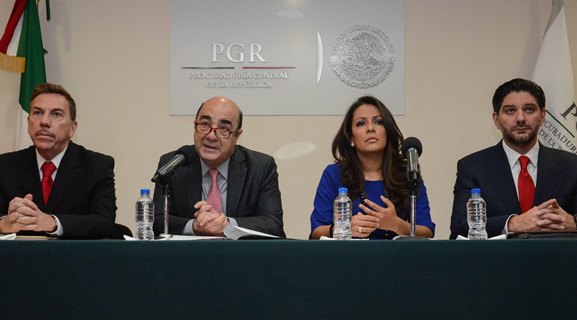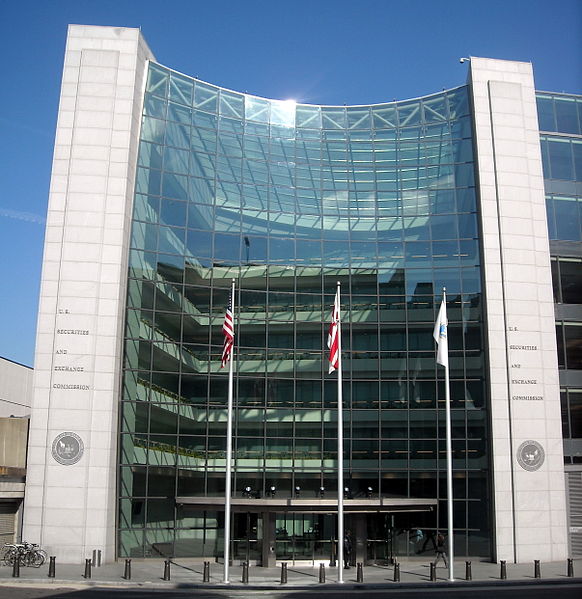The Federal Reserve Board on Monday announced that Credit Suisse will pay a $100 million penalty for unsafe and unsound practices and failure to comply with the federal banking laws governing its activities in the United States. The Federal Reserve also issued a cease and desist order requiring Credit Suisse promptly to address deficiencies in its oversight, management, and controls governing compliance with U.S. laws. This action is taken in conjunction with actions by the Department of Justice and the New York State Department of Financial Services for violations of the federal income tax laws and various New York State laws. The penalties issued by the agencies total $2.6 billion.
The Board’s cease and desist order and assessment of civil money penalty against Credit Suisse, a foreign bank that is subject to the International Banking Act and other U.S. federal banking laws, are based on the institution’s inadequate risk-management and compliance program, and its failure to conduct and accurately report to the Federal Reserve the operations of its New York representative office in compliance with U.S. banking laws. These failures contributed to the violation of the International Banking Act, the U.S. income tax laws, and the U.S. securities laws. Credit Suisse’s New York representative office was closed in 2009. Credit Suisse continues to operate a branch office in New York, which is covered by the enhanced policies and procedures required by the order.
The order requires Credit Suisse to complete its ongoing efforts to implement programs and policies to ensure that Credit Suisse conducts its operations in the United States and worldwide in full compliance with U.S. banking laws and the contemporaneous orders of the Department of Justice and the New York State Department of Financial Services.
As part of the order, Credit Suisse has agreed to terminate its relationship with, and not re-employ or otherwise engage, nine individuals who were involved in the actions that resulted in the violation of U.S. laws. Apart from the actions with regard to the institution, the Federal Reserve is investigating whether other specific individuals that may have been involved in the actions that resulted in violations of U.S. banking laws during the relevant period should separately be subject to actions by the Federal Reserve. These actions could include fines and orders prohibiting specific individuals from participating in the business of banking, including working for any institution subject to the jurisdiction of U.S. federal banking supervisors. Credit Suisse has agreed to cooperate in these investigations, but is not the subject of these investigations.
At a press conference, Deputy Attorney General James M. Coleannounced the guilty plea in Credit Suisse offshore tax evasion case, an historic guilty plea by the bank and the largest monetary penalty of any criminal tax case ever. “Today’s guilty plea is an appropriate resolution, given the duration and breadth of Credit Suisse’s conduct. Credit Suisse engaged in serious wrongdoing, first, when it aided and abetted U.S. tax evasion, and then when it failed to take immediate steps to remedy this conduct and cooperate in our investigation. Today Credit Suisse has admitted that conduct and faces significant consequences for it. Its agreement to pay fines and restitution in excess of 2 and a half billion dollars reflects both the significance of the problem at the bank and the bank’s acceptance of responsibility for it”.
Credit Suisse is taking the appropriate steps to put its criminal conduct behind it and move toward a new era of compliance. Through this guilty plea and Credit Suisse’s civil resolutions with the Securities and Exchange Commission, the Federal Reserve, and the New York Department of Financial Services, Credit Suisse has committed to working with U.S. law enforcement and banking regulators in order to ensure that its wrongdoing remains in the past. “We acknowledge Credit Suisse’s efforts in this regard, and I expect that as the Bank moves forward, it will continue on its new path of compliance with U.S. tax laws”.
More Swiss banks
“In several public statements, I have promised additional public developments with respect to the Department’s investigations into the use of secret offshore bank accounts in Switzerland and elsewhere, and one of those developments has come to pass with today’s plea. But there have been many other notable actions in the past few months in our ongoing efforts to combat the use of foreign bank accounts to evade U.S. taxes. Eight individuals affiliated with Credit Suisse have been indicted by the United States Attorney’s office for the Eastern District of Virginia for their role in conspiring to assist U.S. clients in concealing their income and assets from the IRS. Two of them have pleaded guilty in recent weeks. In January 2013, Wegelin Bank, another Swiss bank, pled guilty to conspiracy to evade taxes. We have targeted 13 other Swiss banks for similar conduct”, adds.
Just recently, a Swiss asset management firm, Swisspartners Group, entered into a multi-million-dollar settlement with the U.S. Attorney’s Office for the Southern District of New York, and produced account files of its clients. “We have also had over 100 Swiss banks come forward as part of a program we put in place with the support of the Swiss government. Under this program, these banks, which were not under investigation, will pay penalties for the violations of US law that were committed at their institutions, and provide us with information that will lead to the identification of their US clients who evaded paying their taxes. We also have had over 43,000 US taxpayers enter into the IRS voluntary disclosure program and pay over $6 billion in back taxes and penalties to the United States Treasury”.
The Department is committed to robust enforcement in the offshore area, not just in Switzerland, but wherever in the world it is found. “We have taken public actions in India, Israel, Luxembourg, the Cayman Islands and several other Caribbean countries. And we are engaged in law enforcement actions around the world that are not yet public”.


 By Fórmate a Fondo
By Fórmate a Fondo


